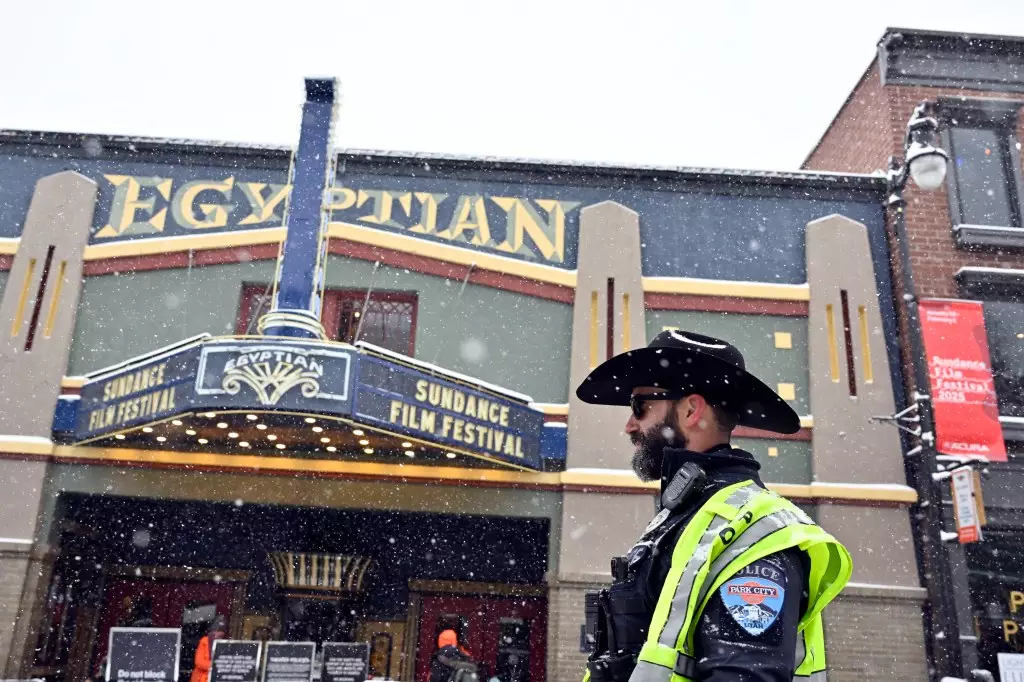As Utah stands on the brink of a significant decision regarding the future of the iconic Sundance Film Festival, a wave of anxiety washes over progressive circles. At the heart of this storm is House Bill 77, a proposed law that would ban the display of the Pride Flag from government buildings across the state. With Utah Governor Spencer Cox having only days left to either endorse or reject this controversial measure, the potential consequences could resonate well beyond the local community—impacting a festival celebrated for its inclusivity and artistic merit.
Mayor Nann Worel of Park City recently expressed concerns that the passage of this bill may jeopardize future iterations of the Sundance Film Festival in Utah. This analysis will delve into the implications of this legislation on cultural identity, economic viability, and community cohesion.
The Economic Stakes: A Battle for Billions
While mannered discussions of artistic expression and cultural representation are vital, they pale in comparison to the significant financial implications tied to the festival. Sundance is not just an artistic staple; it represents an important economic engine for Utah. According to reports, the festival generates approximately $200 million annually in direct and indirect economic impact, creating thousands of jobs and long-term investments in the area. The very notion of losing such an invaluable asset should incite alarm among local businesses and policymakers alike.
However, competition is fierce. Rivals such as Boulder, Colorado, are already courting the festival with enticing financial benefits. Boulder has offered a staggering $34 million in tax incentives, a financial commitment Utah must match or risk losing this cultural icon altogether. If the state legislature demonstrates a willingness to push homophobic legislation, how can they realistically expect Sundance—or any progressive entity—to remain when other states are ready to embrace diversity and inclusion? In this regard, HB 77 stands as an insurmountable hurdle, a poison chalice that Utah may soon find far more damaging than beneficial.
Identity Politics: The Slap in the Face to Inclusivity
At its core, the anti-Pride bill poses an existential threat not merely to a festival but to the collective identity of Utah itself. By publicly rejecting the Pride Flag, Utah sends an unequivocal message: diversity and inclusivity are unwelcome in its public sphere. For a state seeking to portray itself as a bastion of family values and cultural richness, the implications of embracing such aversion to LGBTQ+ symbols cannot be overstated.
The skepticism expressed by Sundance officials in response to this legislation reveals a broader concern within the LGBTQ+ community regarding safety and acceptance. As the festival aims to celebrate tales of resilience, struggle, and inclusion, its home state continues to grapple with outdated views that marginalize its LGBTQ+ residents. This dissonance raises an unsettling question—how many more symbolic slaps will Utah’s lawmakers dish out before the very cultural foundations upon which this festival rests begin to crumble?
The Governor’s Dilemma: Balancing Act on the Tightrope of Politics
Governor Spencer Cox stands at a precarious intersection between advancing a conservative agenda and maintaining the financial and cultural prosperity represented by Sundance. The eyes of citizens, businesses, and the nation are glued to his decision as he weighs the impact of this divisive legislation. Will he sign a bill that many see as discriminatory, or will he take a stand by vetoing a measure that seeks to stifle free expression and celebrate diversity?
As pressure mounts from both sides of the aisle, Cox’s decision could lead to formidable fallout. Signing the bill may resonate well with a significant base of conservative constituents but will undoubtedly alienate the burgeoning plaid of progressive advocates and economic stakeholders who rely on the festival. Conversely, a veto could position him as a figure of progressive hope, yet it might come at the expense of his political capital within his party. Herein lies the crux of center-wing liberalism; leaders must navigate but must also challenge oppressive tides, fundamentally reshaping the landscape before them.
Community Resilience: The Spirit of Park City
Despite the looming threat, voices like Mayor Worel’s exemplify a dogged resilience that defines Park City. Acknowledging the challenges ahead, she emphasized a continuing commitment to the arts, regardless of the festival’s future. If Sundance chooses to leave, she stated, “we will not only survive, we will thrive.” Such sentiments underscore the heart of progressive activism: community cannot merely exist at the mercy of external events, but must grow and adapt, nurturing an artistic ecosystem that elevates voices from all walks of life.
Ultimately, if the festival departs, it wouldn’t just be a loss of a cultural landmark but an opportunity for Utah to rethink its identity. Indeed, the future remains uncertain, but as the winds of change swirl, one thing is clear: resilience in the face of adversity paves the way for hope and innovation, anchoring communities as they navigate complexities of representation, acceptance, and economic wellness.

Leave a Reply